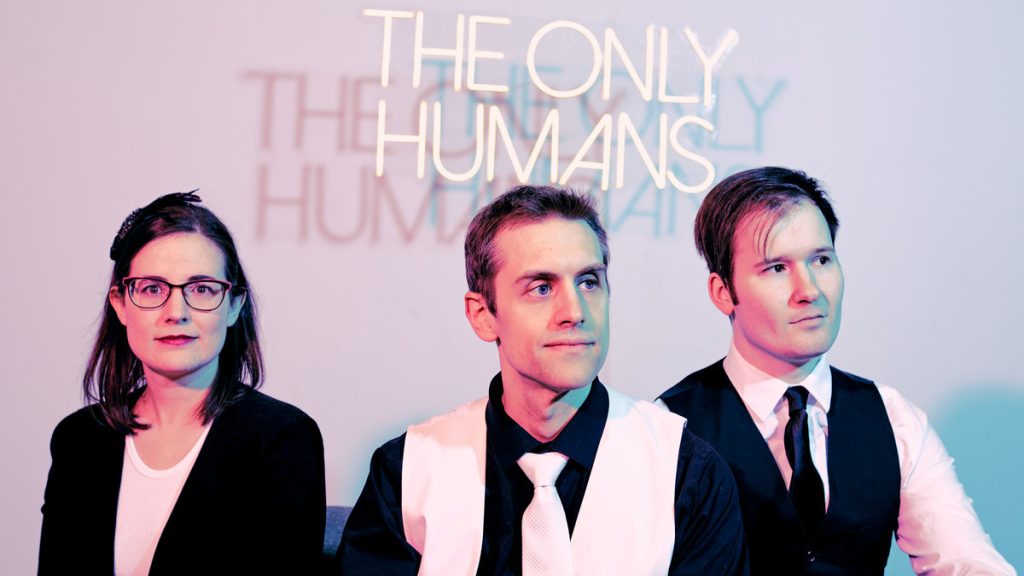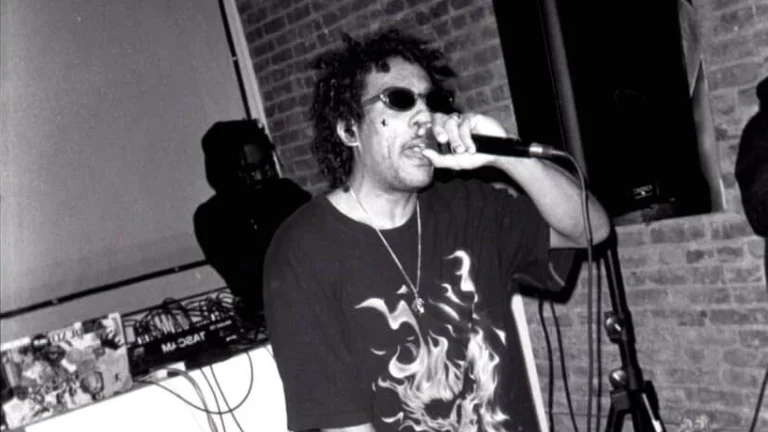In Goran Dukić’s 2006 dark comedy Wristcutters: A Love Story, the main character Zia finds his girlfriend breaking up with him through a letter. This shatters his world to the point where all he can do is clean up the hotel room he’s staying at—vacuuming the floor, making the bed, and organizing everything in sight. I would like to imagine that instead of him doing what he had done next—hopefully, you shouldn’t need me to describe the titular act—Zia took some time, sat down, and wrote something similar to It’s a Beautiful Night. I Think I’ll Disappear Forever. by Boston’s quartet The Only Humans. After all, it is an album by bassist Renée Gauthier, violinist Neil Morrissey, drummer Michelle Tucker, and guitarist, vocalist, and principal singer-songwriter Tim Howd, which sounds like it can only be made after things went so horribly south you are tempted to start all over fresh, if not end it altogether.
Beautiful Night is a baroque rock album all about love, anxiety, and choices. It’s appropriately theatrical rock turning tragedy and anxiety into a musical surveying the damages and what to do afterward. The project opens with the choir-led and appropriately funeral-sounding “My Body Is Full of Invaders #2.” Makeshift church choirs, organs, and lyrics all point towards a romantic yet wrenching line: “My body’s not my own anymore / It surrendered when you came / And though you said I was free to go, the Invaders still remain.” Who are “the Invaders”? The rebound lovers? The people looking to have him work away the pain? All you know is what has been revealed: the lack of love made Howd a shell of himself.
Wildly following the thread of lifelessness is “Death Stood in my Living Room,” which portrays a scenario where death is a tangible hunter. “Death stood in my living room / He smiled and asked if I knew why he was there,” Howd begins on the high-energy track that, like many tracks, would remind you of Georgia folk-punk faves The Mountain Goats. (Howd does share John Danielle’s signature nasally vocals and his gift for narrative-based songwriting.) The song later rushes like a sprint towards freedom as Howd finds Death chasing him, preventing him from being in love and letting such be his salvation.
The album continuously explores love as a rush of life and the fight to keep it alive. Take “Funeral Song” for example, where classic songs such as AC/DC’s “Highway to Hell” are imagined as funeral hymns. (No word on whether it is supposed to be a celebration of life or death.) In the song, a concert Howd along with his significant other attends is over and they miss the only exit home. Somehow that isn’t the worst thing in the song to happen though, and yet it feels like even that couldn’t kill the sing-along energy it possesses. Meanwhile, the bombastic baroque pop of “Penelope, Just Before the Dawn” bemoans the loss of love through heartbreaking lyrics about love never rekindling. “I used to think that distance was romantic / I used to sleep the whole night through,” the band collectively sings. “I used to dream you came in through the front door, and you fell into me falling into you.” But alas, the love was unsalvageable.
Two songs “King Arthur Complex” and “Real Vampires,” both fulfilling the recurring heartbreak story, all find Howd’s song characters suffering in love more than being happy. The former illustrates how trying to be the hero only hurts the cause, so he gives up trying. “I remember you in August, not knowing where you’re headed / Afraid to lose control / I grabbed the wheel without asking for permission and ran us both off the road,” reminisces Howd on the sad sing-along. That isn’t the only song where the ills of love fall on Howd, deserved or not. The folky “Real Vampires” addresses love that doesn’t last very long and only seeks to destroy you. It wasn’t that way at the beginning—is it ever?—but soon enough, it all blows up and the love feels like hardly anything real. Of course, what begins acoustic swells into something emotionally grandiose (the emotional blowup) before ending on a thematically lonely and sour note.
Another theme is the act of trying to ignore both intrusive thoughts and the thoughts of other people. In this case, the act of wondering what is next after losing love and trying to avoid any irrational decisions made in the aftermath. In the final half of “My body Is Full of Invaders #1” Hoes warns, “Keep me away from train stations in September / Don’t let me get on highways in the Spring.” Why? Because “One of these nights, I might disappear forever / See if I can still save anything.” (There’s that mention of safety again.) Thankfully, the reflective swell of the grand finale “Last Boat to Avalon” sees a hunger to run away forever become another averted intrusive thought. He runs “all the way back home,” never needing to disappear again.
It’s a Beautiful Night. I Think I’ll Disappear Forever. is chock full of stories regarding mistakes made, mistakes averted. The biggest what-if is what if a relationship hadn’t ended. It may be an album that Zia could author, but without it, he wouldn’t have his happy ending. In The Only Humans’ album, the only impulses are found in the grand slam attempts, such as blood loogies on “Midnight at the Death Metal Throwdown” and trying to save someone going off the rails on “King Arthur Complex.” (This was reportedly nearly chucked out as an idea.) Otherwise, Dowd’s downhearted character has his own happy ending: the chance to see the sun behind his windowpane again.





